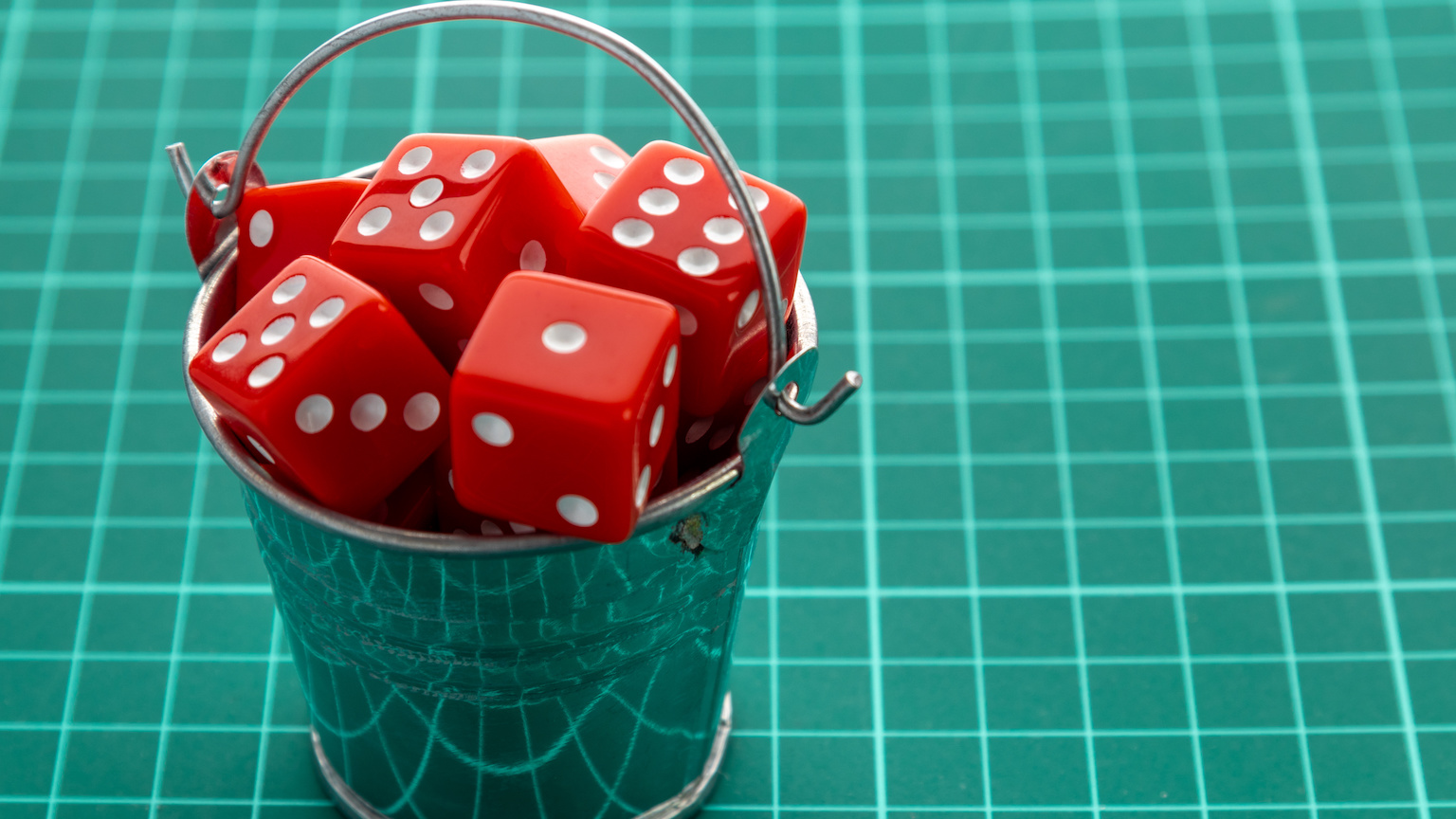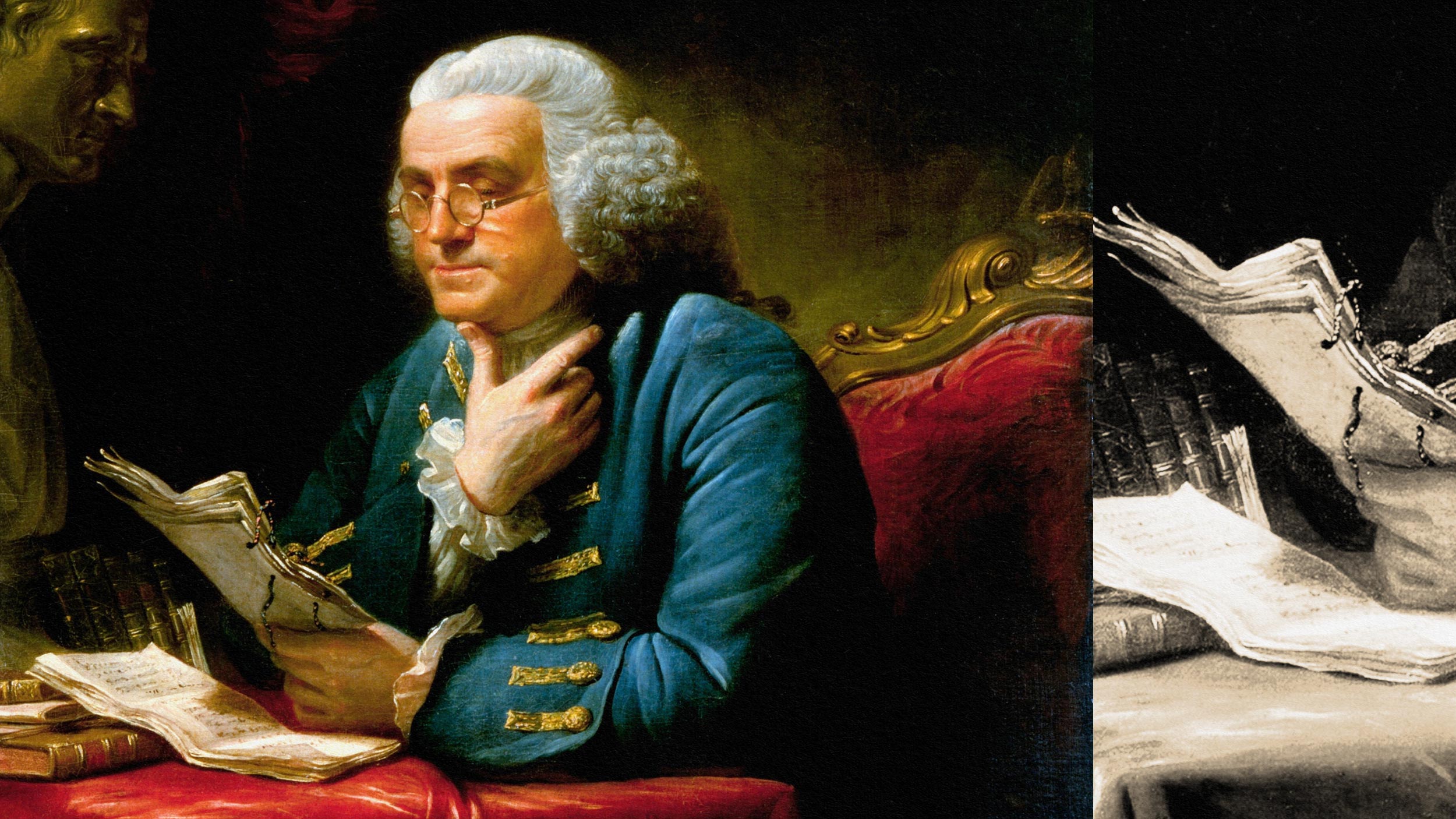Golden Balls: How one man broke a UK game show using game theory

- Game theory is an intriguing combination of statistical probability and human psychology. The best-known example is the “prisoner’s dilemma.”
- There are many real-world applications of the “prisoner’s dilemma,” from nuclear weapons to Tinder.
- On the UK game show Golden Balls, one contestant turned the game upside-down by limiting the options of his opponent.
The “prisoner’s dilemma” is one of the most popular examples of game theory. You and a pal are arrested for committing a serious crime and are placed into your own cells. The police offer you both the same deal: If you confess, you go free, but your buddy goes to jail for a very long time (say, 20 years). If you both confess, you both go to jail, but with a lighter sentence (say, five years). If neither of you confess, the police only have enough evidence to convict you of a minor crime, and you both get one year in jail.
The combinations play out like this:
- You confess; pal does not: 20 years of total jail-time (but zero for you)
- Pal confesses; you do not: 20 years of total jail-time (but zero for them)
- Both confess: 10 years of total jail-time (five years each)
- Neither confesses: 2 years of total jail-time (one year each)
Obviously, if you can trust your pal not to rat you out, staying mum is the best option. But going free is very tempting. If both of you succumb to that temptation, you’ll land in jail for five years each (ten years total). That’s not a particularly good outcome. So, the question essentially boils down to this: How much do you trust your friend to stay quiet?
This is such an interesting dilemma because it manifests in a variety of real-life situations. Game theory is an intriguing combination of probability and human psychology. In the UK, it was even made into a three-year-long game show called Golden Balls (pun was definitely intended). And one clever contestant beat the show.
Real life prisoners
Assuming you’re not the murdering, thieving type, it’s unlikely you’re going to wind up in a police interrogation room anytime soon. But the “prisoner’s dilemma” has a whole host of real life applications. Here are a few examples.
International relations. Nuclear weapons cost a lot of money to make and maintain. Even keeping them is a dangerous business. All nuclear countries would be better off if they could disarm. But to do so unilaterally leaves you vulnerable to attack from your rivals. So as long as nations cannot trust each other to disarm, they too will keep their nuclear weapons. The same dilemma applies to any unilaterally-punishing but multilaterally-rewarding treaty — like climate change agreements, for instance.
Worker hours. In a laissez-faire, unfettered capitalist system with no workplace laws, the prisoner’s dilemma presents itself in a “race to the bottom.” For instance, if Bobby works 9-5, he’s at risk of being replaced by Linda, who’s willing to work 8-6. Linda, in turn, could be fired to make room for Lena, who works 8-6 and weekends. It’s better for everyone if employees agree to certain acceptable work hours. It used to be that guilds or unofficial worker organizations would threaten or assault people who undermined their colleagues by working more. Today, most countries have some kind of workplace rights. For instance, in 2018, a baker in France was fined €3,000 for not taking a day off work.
Tinder. Tinder is a dating app that requires you to swipe right to “accept” a match, or swipe left to “reject” them. Some people do this honestly — swiping on the basis of deliberate, considered attention to the prospective date. Others swipe right on everything with the nonchalant air of a lothario. It’s a dilemma because if both people are thoughtful swipers, the chances of a successful date are higher. But if both are pathological swipe-righters, there will be a lot of pointless dates. Tinder is best when both users take it seriously.
Golden Balls
One of the most entertaining variations of the prisoner’s dilemma was the UK game show Golden Balls. At the end of the show, two contestants must split a jackpot between them. The rules are pretty much identical to the original dilemma: If they both split, they get 50% each; if one splits and the other betrays, the splitter gets nothing, and the betrayer gets it all; if they both betray, they both get nothing. The biggest and most important difference is that the two people can interact, negotiate, promise, cajole, and say whatever they like. The traditional prisoner’s dilemma does not allow the subjects to collaborate in any way.
Humans are rarely rational agents. The mathematical ideas of game theory like the Nash Equilibrium or the Pareto efficient are dwarfed by human pride, self-interest, vindictiveness, and — quite often — sheer idiocy. With the added element of interaction, Golden Balls was also a game of manipulation and deceit. In one great episode, a female contestant cried and looked distraught at the idea of her rival stealing, so he promised to split. He kept his word, but she betrayed and took all the money.
Breaking Golden Balls
One day, a man came along and changed the rules of the game. In this particular episode, the jackpot of £13,600 ($16,600) was to be divided or stolen between Nick and Ibrahim. Usually, contestants open negotiations by promising to split (although neither party knows if they will). Nick, though, takes a different tactic. He stares straight at Ibrahim and says, “I’m going to pick the steal… I want you to split, and I promise I’ll split the money with you after the show.” He flat out admits that he’s going to take all the money.
Despite all of Ibrahim’s efforts, Nick just doesn’t budge. (The unedited version of the negotiations goes on for 45 minutes.) Nick resolutely, unflinchingly repeats that he’s going to steal (but will share his winnings afterward). The art of Nick’s move is that he now limits what Ibrahim can do. Either Ibrahim steals, in which case they’re both getting nothing, or he splits and has to trust that he’s going to get something from Nick. Basically, Ibrahim has to choose between spite and hope. In the end, Ibrahim choses the split — after all, trust in Nick is better than a definite nothing. At the big reveal, it turns out that Nick has also chosen to split.
In a Radiolab interview afterward, Ibrahim said he went into the show thinking he’d steal. Nick’s move changed his mind, and they both ended up better for it. Such is the power of game theory.
Jonny Thomson runs a popular Instagram account called Mini Philosophy (@philosophyminis). His first book is Mini Philosophy: A Small Book of Big Ideas.





